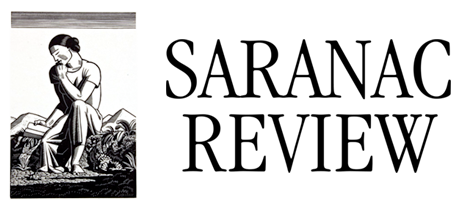
Five Poems
Jane Zwart

A Theodicy for Children
God is the precipice
and theodicy the gravity
for the cataract of whys
Matroyshka-ed inside
a child. Why does
the car stop, why
is the light red, why
do people register
that color as warning
and there it is: blood
in the water, again,
again.
A child
does not ask why not
bundle our arteries
further from our surfaces,
does not blame God
for what seem to be
our flesh’s design flaws—
even as they teethe.
That is our part.
I have wanted to damn
the God I could not move.
I have wanted to dam
my sons’ rivers of whys.
A theodicy for children:
why is a waterfall
and all that entails.
Home Remedies
For chicken pox, ocean; for hives,
night; for agita, a father to bear us
into the tide or bracing dark.
A tear of olive oil for earache
and horizon for the carsick.
for doldrums, crayons; for pique,
toast. They didn’t know cures
for everything that would ail us:
they could not set bones or reverse
metastasis. But an alto dispelled
our sleep’s beasts and taught us:
for embarrassment, laughter;
with his rough thumb, a man
smoothed the veins on our foreheads
that ruckled when we cried.
Different Stillness
Dead, an animal has a different stillness, an indifferent
stillness; the rigor of creatures in copses, sniffing the air,
is a surer stiffness than that of their stiffs, their corpses
in rigor mortis. In life, hognose and hose, pill bug and pill:
they are interchangeable. In death, an animal is softer,
lumpier, less still. Across the water, I cannot tell what
is bobbing in the river, but I can tell it is neither buoy
nor log. I mean, I cannot tell who is bobbing in the water,
but soon the current bears me to where I can make out
the deer’s ear, and I think, Once the fawn would have
pointed that ballet slipper and heard us, the danger we all
are—what with our vehicles, what with our metaphors.
Aphelion
In the stripe of grass between our sidewalk
and the astronomer’s side of the street, a maple.
In October Larry emailed a picture of it, rich
as egg yolk; he was sorry we could not see the color
from his vantage point, a story up, studying
the stars in daylight. Often I think of asking him
about light and gravity but choose instead
to hold onto my errant beliefs about the planets—
that they round the extremes of their orbits not
as swimmers tumble turning but as drinking birds,
the shift in their intentions no less delicate
and decisive than the toy tipplers’ who, in top hats,
sip and abstain when two bulbs swap warmth.
But, really, what I don't want to give up is bigger:
the belief that everything that moves—worlds
and loves, swimmers and heat engines—is wise
to its aphelion; that we all have it in us
to feel an end coming and to turn right on time.
The Revenant
In some families the genes for noses
and dementia are so strong
that a drowned child can visit
a patriarch. Whether the revenant
dispels her own death, standing
at the foot of an old man’s bed;
whether the accident can be declassed,
rechristened a dream—hard to say.
Sometimes you get the dead back whole,
sometimes they reek of the lake.
I know. I have been both an anguish
raised from the grave and a proof
against tragedies already accomplished.
I have been a granddaughter
and a lich. I have been a corpse
and a torment, and I have been
the sinecure of my granddad’s gladness
at believing his memory wrong.
Jane Zwart teaches at Calvin University, where she also co-directs the Calvin Center for Faith & Writing. Her poems have appeared in Poetry, The Southern Review, and Ploughshares, and her first collection of poems is coming out with Orison Books in the fall of 2025.


